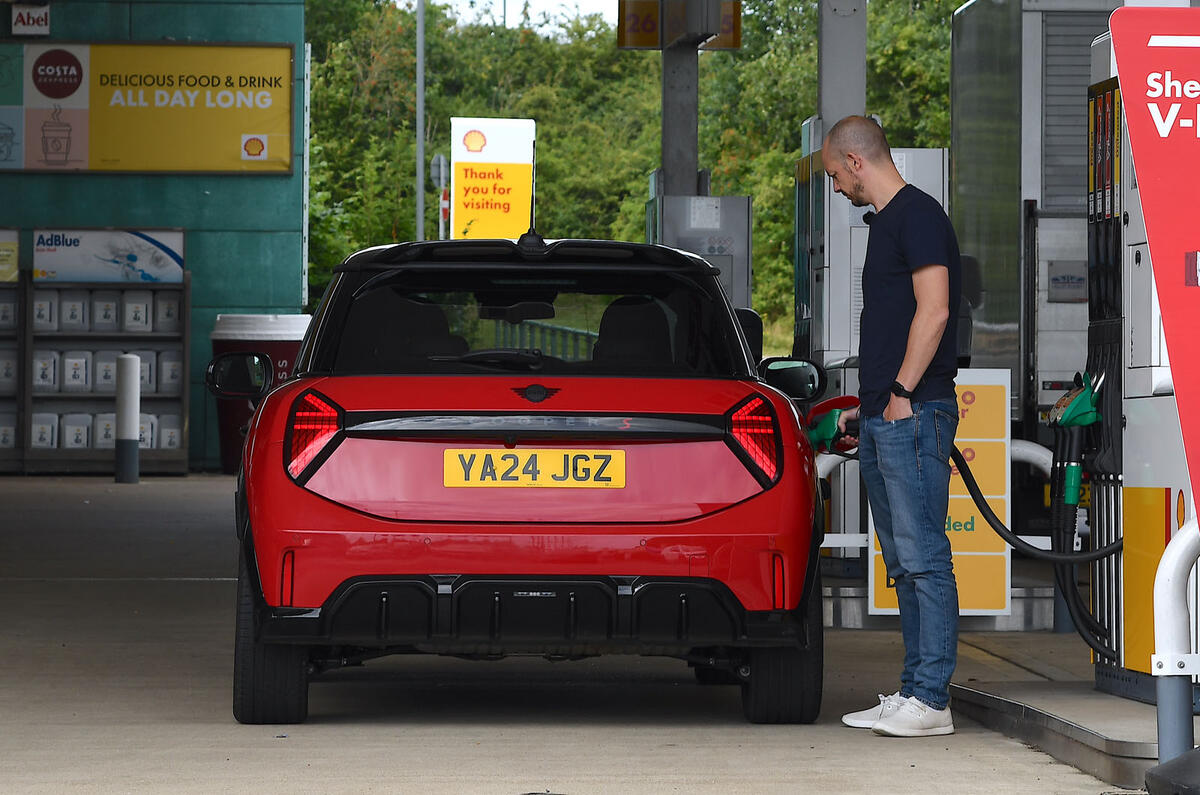Fuel duty has been frozen for another year, chancellor Rachel Reeves has announced in the Autumn Budget.
The current rate of 52.95p per litre will be retained through 2025-2026.
Reeves said: “I have concluded that in these difficult circumstances, while the cost of living remains high, and with the backdrop of global uncertainty, increasing fuel duty would be the wrong decision.
“It would mean fuel duty rising by 7p per litre, so I have decided today to freeze fuel duty, and I will maintain the existing 5p cut for another year too.
“There will be no higher taxes at the petrol pumps next year.”
In the build-up to the Budget, there had been multiple reports that Reeves could remove the 5p cut in fuel duty, introduced in March 2022, to raise extra government funding.
She said that reversing the 5p-per-litre cut and allowing duties to rise in line with inflation (for the first time since 2011) would have raised £3 billion.
First-year VED for most new ICE cars to double
The chancellor also announced that benefit-in-kind tax rates for electric company cars will be maintained from 2028, after which point they will rise by 2% per year.
Moreover, double-cab pick-ups will be treated as cars for capital allowances, benefit-in-kind taxation and deduction from business profits from April next year, the budget document said.
Reeves said the government will also “increase the differential” between the first-year rates of vehicle excise duty (VED) for electric and combustion-engined (ICE) vehicles from April 2025 – when EV drivers will be required to begin paying VED.
To that end, rates for new ICE vehicles that emit more than 76g/km of CO2 will double in 2025-26.
That would mean the owner of a 1.3-litre Nissan Qashqai (which is rated at 142g/km of CO2) would have to pay an extra £270. Meanwhile, a BMW M3 buyer would have to pay an additional £2340 (for a total of £4680) due to the car's official output of 228g/km.
Changes to VED will raise £400 million, Reeves said.
Extra funding for the car industry and infrastructure
Reeves reiterated that the government has reserved some £2bn in funding for the nation's automotive sector, as part of the Advanced Manufacturing Plan announced last year.
Reeves reiterated the £2bn in funding for the nation's automotive sector, announced last November “to support our electric vehicle industry and develop our manufacturing base”.
She announced a £500m increase to funding for road maintenance next year, in a commitment to fix an extra million potholes annually.
The Budget document adds that the government will next year invest £200m to accelerate the roll-out of public EV chargers across England.
Notably, the chancellor didn't announce any measures to incentivise private buyers to buy new EVs. The Society of Motor Manufacturers and Traders (SMMT), which represents the UK's automotive industry, had previously called for VAT on new EVs to be halved for three years.







Join the debate
Add your comment
Basing VED rates for new cars on efficiency would make a lot of sense. It would still punish the polluters, but it would also encourage people to buy the most efficient EVs. (So not the large SUV models.) Hopefully when new EVs reach price-parity with IC cars, as has already happened at Vauxhall, the justification for freezing fuel duty will go away, because those wanting low-cost motoring will be buying EVs anyway. An added bonus will be less money going to fossil-fuel despots in Russia and the Middle-East.
Not a bad budget for me as the owner of a car which is a few years old, and who can't afford the prices of new ones, even if there was anything particularly interesting to buy. Most people I know are in a similar position.
Closing the loophole for double cab pick ups was well overdue, and the doubling of the new car VED rates is small fry compared to how much the manufacrurers themselves have been increasing the prices of new models in recent years. I'm glad she didn't give in to the likes of the ever whingeing SMMT and Stellantis to introduce incentives for private EV buyers, and hopefully she won't raise the threshold for the expensive vehicle supplement in the future, taxpayers shouldn't have to contribute towards these luxury purchases.
I don't understand how taxpayers contribute towards somebody's purchase of a £50k car.
Oh come on!
It's surely about time the tax system took into account the efficiency of EVs, to help encourage manufacturers make them lighter and more efficient.